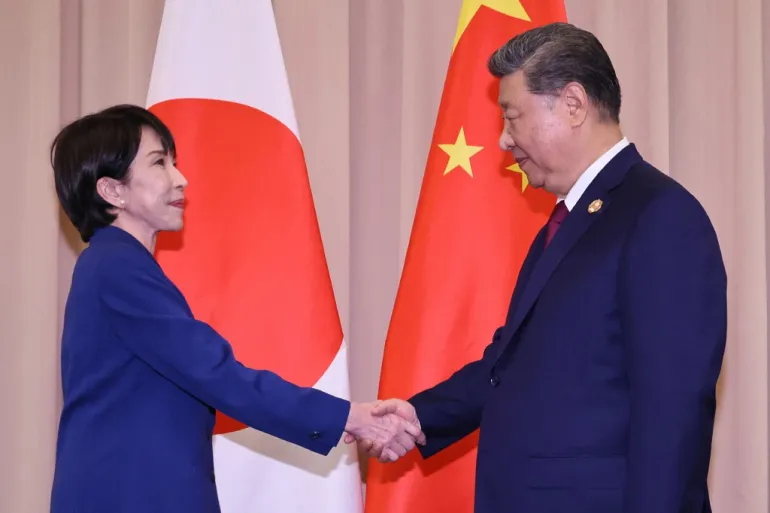China has warned its citizens against travelling to Japan as diplomatic tensions escalate following comments by newly appointed Japanese Prime Minister Sanae Takaichi about the possibility of military action if China attacks Taiwan.
Beijing issued the advisory on Friday, prompting Japan to lodge a formal protest. Chief Cabinet Secretary Minoru Kihara urged China to take “appropriate measures” and stressed that open communication is even more crucial when differences intensify, according to Kyodo News.


The dispute began after Takaichi told Japan’s parliament on November 7 that a Chinese assault on Taiwan—an island Beijing claims as its own—could trigger a military response from Tokyo. China swiftly condemned the statement as provocative and summoned Japan’s ambassador. Japan later reciprocated by summoning China’s envoy after a Chinese consul general in Osaka posted, then deleted, an online message seen as threatening the prime minister.


Despite the diplomatic back-and-forth, Tokyo says its longstanding policy on Taiwan remains unchanged. Taiwan lies only about 110km (70 miles) from Japan’s nearest island.
In its online notice, China’s embassy in Japan said recent remarks by Japanese leaders had “severely damaged” the environment for people-to-people exchanges and warned of “significant risks” to the safety of Chinese nationals in Japan. Citizens were advised to avoid visiting the country in the near term.
In response to the growing tension, China’s major airlines — Air China, China Southern, and China Eastern — announced they would offer full refunds or free itinerary changes for flights to Japan through December 31.


Beijing maintains that Taiwan, which Japan ruled until 1945, is part of its territory and says it has not ruled out force to bring the island under control. Although China and Japan remain major trading partners, distrust rooted in history and ongoing territorial and military disputes regularly strains their relationship.
Japanese leaders traditionally avoid explicit references to Taiwan in security discussions, preferring a stance of “strategic ambiguity” similar to that of the United States.


Commenting on the latest developments, Taiwan Presidential Office spokesperson Karen Kuo said China’s travel restrictions and military drills highlight Beijing’s “politically motivated, multifaceted threats” toward Japan and the broader Indo-Pacific region.
Meanwhile, China’s Maritime Safety Administration announced round-the-clock live-fire drills in sections of the central Yellow Sea from Monday to Tuesday, with entry to the area restricted, according to state broadcaster CCTV.




